There are educators everywhere working to teach the next generation of sustainability minded students. Whether in formal settings (K-12, undergraduate, graduate) settings or informally as science communication now it is more important than ever to work towards advancing Conservation Tech education.
The United Nations released the 17 Sustainable Development Goals (SDGs) which have served as a framework for educators in this space. Educating with a sustainable focus is a challenge whether you are interested in engineering, public policy, AI, or behavioral biology and we hope that this group will help you grow and exchange your ideas with other current and future educators.
This WILDLABS group has been set up by folks who are working to develop education toolkits, platforms, modules, and more in the conservation space. These tools can be at any level of development.
We hope you will become part of this group to share case studies, exchange ideas, and work towards developing a curriculum for future conservation tool crafters.
Current Examples of Conservation Tech Education Resources:
CV4Ecology Summer Workshop:
- Website for Summer Camp Information,
- Applications Due December 15th for next cohort
- 2022 Material including Syllabus, Lectures, Invited Talks, Final Presentations
Tech Tutors from WILDLABS
- TechTutors Season 1, WILDLABS
- TechTutors Season 2, WILDLABS
- TechTutors Season 3, WILDLABS
Want to know more about Conservation Technology education resources? Make sure to join the conversation in the WILDLABS Conservation Tech Training and Education group.
Additional Conservation Tech Courses:
- Tech4Wildlife @ Georgia Tech – Interdisciplinary and Project Based course on Conservation Technology
- MSc Wildlife Conservation Tech – Liverpool John Moores University Program
No showcases have been added to this group yet.
- @Kirsty
- | She/Her
Manchester Metropolitan University
I am a molecular biologist developing portable tools for genetic analysis in the field
- 0 Resources
- 0 Discussions
- 5 Groups
Conservation Biologist; Research interest Human Dimensions on Wildlife Conservation and Conservation Tech

- 2 Resources
- 5 Discussions
- 8 Groups
Fauna & Flora
GIS & Remote sensing technical specialist at Fauna & Flora



- 0 Resources
- 15 Discussions
- 6 Groups
- @nancyalice
- | she/her
Design x Climate Action

- 0 Resources
- 0 Discussions
- 10 Groups
- @Arjun_Viswa
- | S
- 0 Resources
- 0 Discussions
- 26 Groups
3point.xyz
Over 35 years of experience in biodiversity conservation worldwide, largely focused on forests, rewilding and conservation technology. I run my own business assisting nonprofits and agencies in the conservation community

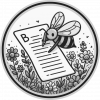

- 6 Resources
- 69 Discussions
- 12 Groups
- 0 Resources
- 0 Discussions
- 18 Groups
- @frides238
- | She/her
Hi! I am Frida Ruiz, with a bachelor's in Mechanical Engineering and very interested in habitat restoration & conservation. I am excited to connect with others and learn about technology applications within applied ecology & potential research opportunities

- 0 Resources
- 5 Discussions
- 13 Groups
- @eliseb227
- | she/her
Yale University
Biodiversity Data Coordinator @ Yale Center for Biodiversity and Global Change
- 0 Resources
- 0 Discussions
- 8 Groups
- @Ednavarro
- | He/Him
- 0 Resources
- 0 Discussions
- 4 Groups
- @amberbc
- | She/Her
The University of Western Australia & WA Department of Primary Industries and Regional Development (DPIRD)
WA Entomology PhD researching better ways to monitor for beneficials. GRDC Research Scholarship. DPIRD Study Leave.



- 7 Resources
- 17 Discussions
- 5 Groups
Machine learning & data science specialist. Passionate about oceans, data and impact.
- 0 Resources
- 4 Discussions
- 5 Groups
Making waves in wetland conservation: Explore the outcomes and insights from Ramsar COP15, a premier global event on wetland protection and sustainability
10 August 2025
If you're a Post-Doctoral Fellow, a PhD student, or a member of the research staff interested in applying your computational skills to support active research publications, please read on to learn about the Cross-...
5 August 2025
Link
The RCoE Geoportal provides comprehensive forest datasets that can help governments, researchers, and conservationists make informed decisions. From deforestation trends to forest cover analysis, these datasets offer...
5 August 2025
Article
In most ecosystems, conservation organizations fight for specific objectives creating enemity other than working together, to feed the increasing conservation needs that are changing with the change in generational...
30 July 2025
The Marine Innovation Lab for Leading-edge Oceanography develops hardware and software to expand the ocean observing network and for the sustainable management of natural resources. For Fall 2026, we are actively...
24 July 2025
Lead a growing non-profit to sustain open source solutions for open science!
19 July 2025
Funding
I have been a bit distracted the past months by my move from Costa Rica to Spain ( all went well, thank you, I just miss the rain forest and the Ticos ) and have to catch up on funding calls. Because I still have little...
28 March 2025
We are hiring for a customer support / marketing specialist.
20 February 2025
Careers
Strategic Protection Of Threatened Species (NGO) is looking for engineering interns at the Dinokeng Game Reserve, South Africa
6 February 2025
Conservationists use tools like drones, satellites, and camera traps to monitor ecosystems and scale their impact. But new challenges like transparency, funding gaps, and engagement remain. Web 3.0 technologies offer...
28 January 2025
This leads to an exciting blog we did recently, it also includes a spatial map indicating elephant movement tracks of an orphaned elephant who self released himself into the wild (Kafue National Park). Cartography was...
28 January 2025
Over the years, a large number of developments have gone up in the area that I live in and the municipality is not doing what they should when it comes to upholding the laws that have been put in place to protect the...
20 January 2025
August 2025
event
September 2025
event
event
November 2025
event
February 2026
March 2026
June 2025
event
10 Products
2 R&D Projects
20 Organisations
Recently updated products
Recently updated R&D Projects
Recently updated organisations
| Description | Activity | Replies | Groups | Updated |
|---|---|---|---|---|
| want to join 2025 contest for humpback whale photos in Juneo Alaska of Kelp |
|
Citizen Science, Conservation Tech Training and Education, Drones, Emerging Tech, Geospatial, Human-Wildlife Coexistence, Marine Conservation, Open Source Solutions | 1 day 13 hours ago | |
| This is awesome!! |
|
Conservation Tech Training and Education, Drones, Emerging Tech, Geospatial, Open Source Solutions | 2 days 5 hours ago | |
| Hi everyone!Sharing a Project Update here :)This past July, we successfully launched the expansion of our bee mapping work across the Peruvian Amazon with the support of WildLabs... |
|
Conservation Tech Training and Education | 6 days 5 hours ago | |
| Hello WILDLABS Community, Ocean Science Analytics recently launched an ocean-focused course for those interested in learning how to... |
|
Geospatial, Conservation Tech Training and Education, Early Career, Earth Observation 101 Community | 1 week ago | |
| 🐝 Apis Nomadica Labs: Mapping Royal Jelly Terroir Through Mobile Bee BiotechAbout Us:Apis Nomadica Labs is a mobile apiary research... |
|
Acoustics, Conservation Tech Training and Education, Animal Movement, Human-Wildlife Coexistence | 1 week 1 day ago | |
| Hi everyone,I’m currently developing a multilingual, offline-friendly training program called ConTech Curriculum, designed... |
|
Autonomous Camera Traps for Insects, Camera Traps, Conservation Tech Training and Education, Protected Area Management Tools | 1 week 5 days ago | |
| G-DiNC 2026: Global Drones in Nature Conservation Symposium & ExpoNairobi & Naivasha, Kenya | March 3–6,... |
|
Drones, AI for Conservation, Conservation Tech Training and Education, Emerging Tech, Marine Conservation, Sensors | 4 weeks 2 days ago | |
| Do you know a nonprofit or organization that is looking to work with students passionate about the environment? Code the Change... |
|
AI for Conservation, Citizen Science, Conservation Tech Training and Education, Open Source Solutions, Software Development | 1 month 1 week ago | |
| 15 years ago I had to rebuild the dams on a game reserve I was managing due to flood damage and neglect. How I wished there was an easier,... |
|
Drones, Conservation Tech Training and Education, Data management and processing tools, Emerging Tech, Geospatial, Open Source Solutions | 4 months ago | |
| Support the Cartographer Cause! Hi there,I am on a mission to empower children and communities through maps, GIS — helping people better... |
|
Climate Change, Community Base, Conservation Tech Training and Education, East Africa Community, Geospatial | 1 month 2 weeks ago | |
| Thank you for your comment Chris! Using these tools has made a huge difference in the way we can monitor and manage Invasive Alien Vegetation. I hope you are able to integrate... |
|
AI for Conservation, Citizen Science, Conservation Tech Training and Education, Drones, Geospatial, Human-Wildlife Coexistence, Open Source Solutions | 1 month 4 weeks ago | |
| Thank you for creating this post to gauge interest, Nabil! It sounds like this fits under the already existing eDNA & Genomics group. Curious to hear your thoughts! |
|
Conservation Tech Training and Education | 2 months ago |
Drone specific GIS training online for Conservationists
9 January 2025 11:12am
17 January 2025 3:50pm
@cmwainaina check this out
Webinar: Drone-based VHF tracking for Wildlife Research and Management
9 January 2025 11:45pm
Canopy access or tree climbing resources for arboreal research
12 September 2024 8:51pm
4 October 2024 10:04pm
Hi all! Folks may be interested in the Cornell Tree Climbing program that is a part of Cornell Outdoor Education. Not only does Cornell offer training, and have a bunch of online resources, but they have also facilitated groups of scientists to collect canopy samples and data.
Cornell Tree Climbing | Student & Campus Life | Cornell University
CTC promotes safe and environmentally responsible tree climbing techniques for
9 January 2025 10:50pm
Hi Dominique,
Thanks for your responses and congratulations on getting trained!
I can see that speaking directly with a climbing professional could be the most beneficial because what climbing methods and equipment you may need will depend very much on individual project goals and budgets. Did you end up speaking with your trainers about your field research goals and what climbing methods may be best for you?
9 January 2025 11:27pm
Hi Mark, thanks for responding. I think you've identified one of the most difficult parts of research climbing: maintaining your climbing skills and knowledge between field sessions.
My husband is an experienced arborist and practices his skills almost daily. I am not an arborist, so I schedule climbing time to keep my abilities fresh and my husband is there to assist. But I know it's difficult for individual researchers to practice on their own and they should only be climbing alone if experienced and not in a remote area.
However, it's possible to train researchers to safely climb in the field for multiple field sessions. My husband and I trained a group of climbers in Cameroon in January, 2024. The goal was to train four climbers who would go into the remote rainforest for several weeks and set up camera traps. They would deploy and retrieve arboreal cameras at different survey locations over two years. We needed to train the teams to operate safely and independently (without an instructor present) in very remote areas.
To train them sufficiently, my husband and I spent 1 month in Cameroon with the field team. We did a few days of basic training at a location near the city and then went with them on their initial camera deployment where we continued field training for 2.5 - 3 weeks. Before going to Cameroon, we had several discussions to determine what climbing method and equipment would best meet their data collection goals and were appropriate for their field site and conditions. We taught them basic rescue scenarios. We also set a climbing practice schedule for the team to maintain their climbing and rescue skills. We strongly emphasized to their management that the field team needed access to the climbing gear and needed to follow the practice schedule. Since the training, the team successfully finished two other camera trap surveys and is planning their third.
This was a lot of up-front training and cost. However, these climbers are now operating on their own and can continue operating for the foreseeable future. I think a big reason is receiving extensive training, tailored to their needs. General tree-climbing courses are great for learning the basics, but they'll never be a substitute for in-field, tailored training.
My Journey with the Women in Conservation Technology Program
27 December 2024 1:50pm
STEMLAB4Nature: Inspiring Conservation Through Tech &Education
18 December 2024 9:54am
Susan and Conservation outreaches
16 December 2024 5:54am
conservation education assessment
27 November 2024 7:38am
2 December 2024 8:20am
assessing any intervention depends on your objectives. So I would recommend that you have a good look at these and try to examine how your conservation education can be linked to that. That should then form the basis of your evaluation. Ideally you would compare it to a group of similar students who did not get the education to measure the change.
Question about black coral and octocorallia identification
25 November 2024 2:19pm
28 November 2024 6:31am
Hi Muhammad,
The best reference I know of covering shallow soft corals around Indonesia is Fabricius & Alderslade, its not a complete guide to everything you might see there, but the best thats currently available.
Note that you can only reliably ID octocorals from the sclerites and these need examination under a microscope, which require destructive sampling of a small amount of tissue, but these are intact in dried specimens.
Hope that helps
Designing and Implementing Monitoring and Evaluation Tools for Conservation Education Programs
24 November 2024 3:34pm
Discover the Centre for Sustainable Forests and Landscapes (CSFL) in Edinburgh
18 November 2024 9:37am
Who gave you your last research travel grant? | ¿Quién le concedió su última beca de viaje de investigación? | Quem lhe concedeu sua última bolsa de viagem de pesquisa?
16 October 2024 6:21pm
16 October 2024 10:03pm
Thank you for your answer, Vanesa!
And for reminding me to add a translation.
18 October 2024 7:19pm
That is challenging and I'd be keen to hear other people's suggestions!
From the academic realm, I'll say that many graduate students get travel funding through scientific societies. E.g. the Association for Tropical Biology and Conservation has seed grants:
https://tropicalbiology.org/grants-awards/atbc-seed-research-grant/
And Society for Conservation Biology has grad student awards:
https://conbio.org/mini-sites/scb-awards/student-awards
These are often restricted to members unfortunately. National/regional societies might be good resources for people to look into.
4 November 2024 1:49pm
Oops, sorry about that. I wrote a reply a few weeks ago, and I am pretty sure I clicked the button, but apparently something went wrong. So, another attempt
Thank you for your answer, @brandon. I had overlooked the scientific societies.
Membership may be an issue, but I noticed that the ATBC has diversified fees depending on career stage and the member country's economic development, and the SCB membership fee depends on income.
Seminar Series About Underwater Sounds!
21 October 2024 5:34pm
1 December 2024 10:55pm
6 January 2025 8:35pm
21 January 2025 6:06pm
Distance sampling: Survey design
11 October 2024 11:32am
MS and PhD Opportunities in Ocean Engineering and Oceanography
6 October 2024 9:44am
WILDLABS AWARDS 2024 - Fostering bat conservation and citizen science in Zimbabwe: Establishing bat groups and training individuals to use bat detectors
4 April 2024 12:12pm
24 April 2024 2:27pm
Thank you Robyn. Sure I will send more information to your email
9 September 2024 2:28pm
Hi everyone
Our project on fostering bat conservation and citizen science in Zimbabwe has reached another level. To date, the project team has established two bat groups in Bulawayo and Chimanimani. Forty-three people from these two provinces have been educated on bat biology and trained in the use of bat detectors. The trainees appreciated the importance of bats in the environment, and that their conservation is essential.
Due to limited resources, the training sessions were not sufficient for the trainees, as the Kaleidoscope software for analyzing data is somewhat complex. A similar training workshop will be conducted in Harare.
Next steps of project:
Continue training bat group participants on using bat detectors and analyzing acoustic data;
Reach out to other areas and establish bat groups across the country;
Promote and research important habitats for bats in Zimbabwe.
We continue to express our gratitude to @wildlabs for funding the project. The team: @Ronnie @Ropafadzo @Karen
1 October 2024 8:17pm
I would love to see my bat detector designs in use in Africa - drop me a line, let's see if we can get something to happen - I'm pipistrelledetector at gmail dot com

http://www.pippyg.com
Building a biodiversity startup focused on getting landowners to use native plants
23 September 2024 3:37pm
30 September 2024 10:06pm
This sounds a similar tool you may want to check out - Ecodash.ai
1 October 2024 2:40pm
Thanks! Do you happen to know how to get in touch with the folks leading this initiative?
1 October 2024 2:47pm
I'm not affiliated, I just happened across it... not sure who is actually leading it.
Conservation tech in Human Wildlife Conflict
12 September 2024 1:50pm
23 September 2024 10:34pm
Thank you so much Brett.
I am not familiar with some of these tools such as critter alarm but I did search a little about it and it looks very interesting, I will look more on it's effectiveness on Elephants and Hyenas.
25 September 2024 4:51am
The beehive method is neat! Will have to read up on that.
25 September 2024 4:56am
Odor based methods would be interesting. Provided they didn't need to be replenished too often.
We find varied stimulus prevents habituation.
EarthRanger and Skylight for improving protected and conserved area effectiveness
23 September 2024 1:30pm
Looking to understand SMART
31 July 2024 7:06pm
9 August 2024 1:30pm
In addition to the suggestions already listed, I'd recommend engaging with the SMART Community Forum:
There are also many peer reviewed papers on the topic, for example:
Conservation Technology - Google Books
The global loss of biodiversity is occurring at an unprecedented pace. Despite the considerable effort devoted to conservation science and management, we still lack even the most basic data on the distribution and density of the majority of plant and animal species, which in turn hampers our efforts to study changes over time. In addition, we often lack behavioural data from the very animals most influenced by environmental changes; this is largely due to the financial and logistical limitations associated with gathering scientific data on species that are cryptic, widely distributed, range over large areas, or negatively influenced by human presence. To overcome these limitations, conservationists are increasingly employing technology to facilitate such data collection. Innovative solutions have been driven by dramatic advances in the conservation-technology interface. The use of camera traps, acoustic sensors, satellite data, drones, and computer algorithms to analyse the large datasets collected are all becoming increasingly widespread. Although specialist books are available on some of these individual technologies, this is the first comprehensive text to describe the breadth of available technology for conservation and to evaluate its varied applications, bringing together a team of international experts using a diverse range of approaches. Conservation Technology is suitable for graduate level students, professional researchers, practitioners and field managers in the fields of ecology and conservation biology.
http://www.primate-sg.org/storage/pdf/VJP_3_4_pp59-68.pdf
Willingness to Adopt the Spatial Monitoring and Reporting Tool (SMART): The Case of Ugalla Game Reserve, Tanzania. | EBSCOhost
Discover this 2021 paper in Journal of Education, Humanities & Sciences (JEHS) by Magige, Flora John; Nahonyo, Cuthbert L.; Wilfred, Paulo; et. al. focusing on: TANZANIA; PROTECTED areas; EMPLOYEE training; HUMAN resources departments; LAW enforcement; GAMES
Law Enforcement for Wildlife Conservation (Chapter 2) - Artificial Intelligence and Conservation
Artificial Intelligence and Conservation - March 2019
Asia-Pacific Forest Sector Outlook: Innovative forestry for a sustainable ... - Pingault, N., Roshetko, J.M., Meybeck, A. (eds.) - Google Books
Young students and people, formally or informally engaged in the forest sector, will be the guardians and managers of tomorrow’s forests. Technology savvy, the youth can play an instrumental role in the uptake and scaling-up of innovative technologies (whether digital technologies, biological technologies, technical innovations on processes and products, or innovative finance and social innovations), able to advance sustainable development in the forest sector in the region. Young people can bring in the innovation debate forward-looking perspectives and out-of-the-box thinking. This is why FAO and CIFOR/FTA decided to strengthen their voice in the debate, relaying their experiences and propositions for sustainable innovation in the forest sector. This FAO and CIFOR co-publication gathers 13 youth contributions, carefully selected. These contributions illustrate, in various contexts, the potential of innovative technologies to advance sustainable forestry and sustainable forest management in the Asia-Pacific region.
26 August 2024 10:42am
Have you looked at some of the case studies published on SMART website. Also SMART webinars on Youtube could also interesting to understand the software.
Also recommend looking at SMART alternative EarthRanger which is far more simpler than SMART.
EarthRanger: Protecting Wildlife With Real-Time Data
EarthRanger: Protecting Wildlife With Real-Time Data
18 September 2024 10:52am
Hi loveness
Comprehending the given answers, I hope this link will help you understand more about SMART. its contain courses of SMART training
https://smart.campusuci2.com/course/index.php?categoryid=5
Thanks
Distance sampling: Analysis with R
13 September 2024 11:29am
Women in the Field 2024
10 September 2024 8:14am
Technology for Counter Wildlife Crime experts for course
4 September 2024 10:25am
6 September 2024 12:21pm
Re:Wild and some of their partners have set up SMART (www.smartconservationtools.org) at several locations in the Caribbean, e.g.,
and WCS has successfully implemented SMART-based conservation programs in both terrestrial and Marine PAs in Belize:
If you are interested in specific contact people for either of these, send me a direct message.
Rich
Distance sampling: Theory & applications
5 September 2024 9:10pm
10 September 2024 8:33am
Explore data using R: online course
28 August 2024 4:33pm
WWF-New Zealand calls for community education and conservation projects (<NZ$15K)
22 August 2024 5:46pm
The need for specialized technology tools to enhance plant conservation
3 August 2024 8:31pm
11 August 2024 1:21am
That's a great question! I don't have any answers but my first thought was that the detection part of the problem looks very different when you're looking for plants vs animals (no camera traps, audio recorders, etc.) and often quite hard, as you're having to discriminate species that may be difficult to identify even in hand.
I'd love to hear more from people who are working on this!
11 August 2024 7:07am
Thank you for your valuable insights. I, too, am eager to hear more from those actively working on this issue.
What new best-practice guides do you need?
23 February 2023 10:06am
24 February 2023 1:00pm
Yeah it looks great! Actually that guide coming out at the same week as the sat tracking guide is what prompted this thread!
26 February 2023 6:18pm
What about thermal cameras and drones with thermal cameras for monitoring of mammals?
9 August 2024 1:14pm
Hi,
maybe this could be a candidate for a best practice guide 😉 My free manual 'Drones in Biomonitoring' - https://doi.org/10.5281/zenodo.8077113 It canhelp to get (more) knowledge how to proceed easily and successfully 😉
It covers topics from buy to fly and data processing.
📖 The manual was developed to help authorities, landscape conservation / maintenance or nature conservation associations etc. in nature conservation to manage their growing monitoring tasks more effectively and cost-efficiently.
🛸 The use of drones can contribute in many ways to increasing the effectiveness of monitoring, reducing costs and minimizing disturbance - https://www.researchgate.net/profile/Steffen-Doering.
Best regards!
Steffen











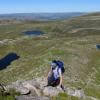







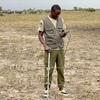





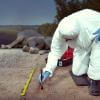











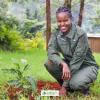



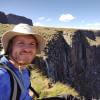
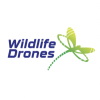

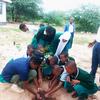














16 January 2025 2:17pm
Just sent you a message about The Inventory :)